Just Really Lowbrow
Talent City Council has a consensus problem that we are not supposed to talk about.
During the oddly contentious Talent City Council election of Fall 2024 something very interesting was revealed about the way our Council makes decisions. Many of us hadn’t realized what was happening before this and it raised some important questions that we at Talent Council Watch think need to be publicly asked and answered.
There is a bit of context that needs to be laid out here before we can dig into those questions, so let’s go on a short mudball-throwing detour.
Russell Hodgdon, life-long Talentonian, was running for Council Seat #4 against Rosario Medina, also a Talent lifer. Hodgdon posted a Meet the Candidate event announcement to his campaign page on Facebook with a little bit of cutting commentary, which ended up triggering some heated accusations from a few of the folks on the slate he wanted us to break.
It appears that Mayor Darby really did not like his post. Her responses to it in multiple groups and in the comments of several posts over the next few days read to us as overly defensive and critical of his decision to even run for office against Medina in the first place (despite the fact that he had been running for Seat #4 unopposed before she entered the race).
Rosario Medina enters the fray here, arguing that Russell is perpetuating a racist and sexist narrative by saying that the Mayor-endorsed slate candidates would be more likely to maintain the status quo than to instigate change on the Council.
Hodgdon responds to her accusations with some interesting claims of his own, thereby unleashing Consensus Discourse onto the Talent political scene and ultimately leading to the creation of this very newsletter you’re reading right now.
Ok now we can get into the meat of this weird sandwich. First of all, could we write a 12-part investigative series about the Mayor’s social media behavior, especially during election season? Yes, yes we could. But for now we’re just gonna zoom in on a piece of this one incident because it’s fascinating and unsettling and may even be telling us that our City Council regularly operates in violation of the law.
When Hodgdon brings up the fact that there have been zero (0) dissenting votes through August over 81 different Council motions, all heck breaks loose. Mayor Darby and Councilor Daniel Collay both defend themselves against their own voting history with the argument that they are simply “building consensus,” which someone at some point must have decided is the right way to govern Talent?
(For what it’s worth, for August through December the Council again didn’t have a single NAY vote on any motion. That’s an additional 6 meetings and 33 votes of nothing but AYEs. 114 Votes in 2024. Not a single NAY).
Consensus as a small town Council’s decision-making process has some strengths, but also many weaknesses, and is certainly worthy of its own debate. Some experts argue that consensus-building in groups of this nature often does not result in representative governance, not that anyone asked them. But what’s especially interesting in this situation is that the Council members who spoke on this said that the consensus form of decision-making requires “extra” deliberation to achieve. In their own words:

What we are being told by our Mayor and Councilor here is that just because they vote yes on every single motion literally 100% of the time, that doesn’t mean they don’t disagree with each other. They totally disagree! It just means that they meet to work through these disagreements BEFORE they come to the Council meeting to vote on them.
There’s a rather glaring problem with that.
“A quorum of a governing body may not meet in private for the purpose of deciding or deliberating toward a decision on any matter.”
This is what Oregon law says:
Decisions must be discussed and made publicly. Any discussion, deliberation, or decision by a governing body must take place in an open meeting unless a specific exemption applies.
If a quorum (the minimum number of members needed to make decisions) is present, the body cannot meet privately to deliberate or decide on official matters.
No “serial” or “rolling” meetings. That means public officials cannot avoid the law by holding a series of smaller, private discussions (such as through emails, phone calls, or one-on-one conversations) that collectively involve a quorum and lead to a decision.
Certain topics (e.g., personnel matters, legal consultations, real estate negotiations) may be discussed in exempt Executive Sessions, but final decisions must still be made in a public meeting.
Here is a longer summary of what the law says >.
These meeting rules are intended to reflect that government belongs to the people and should operate in a way that is transparent and inclusive. The purpose of the laws is to ensure that Council conducts City business openly so citizens can see how decisions are made and can hold officials accountable. They allow ALL community members to observe and provide input on decisions that affect them, not just those with special access, and they help prevent corruption, undue influence, and backroom deals.
So if the Mayor and Councilor Collay are admitting that the Council members disagree with each other about City business all the time but the public just doesn’t see that because they argue privately, well that’s a pretty serious problem.
Once again, from the Mayor herself:
“It discounts the countless extra meetings that the members put into consensus building.”
“It would be far easier to come to meetings with views based on limited info, and vote either up or down on policy and get back to their families.”
“Hours of sharing differing views, compromise and revision. Putting in extra time at study sessions, community engagement, public hearings, making revisions, building consensus before taking a vote.”
Needless to say, there should not be “countless extra meetings” that the public doesn’t know about. “Extra meetings” should in fact be extremely countable!
The Mayor mentioned Study Sessions. Let’s take a look at those to see if all this consensus-building is happening in there, because as far as we know there are not any other types of public meetings where the Council as a body discusses the items that it ends up voting on.
What we find when we look at all the Regular Meeting Minutes alongside this list of Study Sessions is that in Jan-Feb 2024 there were 2 votes - Water Rate Options and the Bear Creek Project - that did indeed have Study Sessions about them take place prior to the vote. We can’t say if there was disagreement on these topics because we did not want to listen to two whole Council Study Sessions to find out. For good measure let’s just assume there was some dissent present. Regardless, as we can see in the list above, the vast majority of the Study Sessions that took place in 2024 were about Council goal-setting, which ended with a vote in May, and extensive procedure education.
So if not Study Sessions, then what countless extra meetings are they referring to where all this consensus-building is taking place? Or are Council members regularly deliberating behind closed doors to come to agreements before they vote? Or could it be that everyone on the Council is afraid to disagree with the Mayor?
114 Council votes in 2024, every single one of them unanimous AYE’s.
What could the complete lack of dissenting voices mean? According to our research1, this level of affirmative unanimity is uncommon and suspicious in a City Council, and is likely due to one or both of the following:
Council members are privately discussing and deciding on matters with one another before public meetings, which is considered a rolling quorum and is against the law.
Council members feel pressured socially or politically to vote in lockstep, avoiding dissent with the group leader(s) in order to maintain unity and avoid scrutiny.
The Mayor vehemently denies that “Powerful Council Leaders” are in political lockstep, and she lets us know that it is ridiculous to have concerns about this. In fact she thinks it’s “lowbrow” to even bring it up.
Lowbrow refers to something that is not intellectual or sophisticated, often associated with crude, uncultivated, lower class culture. It’s the opposite of highbrow, which means of superior intellectual interests and refined tastes. That’s what our town’s Mayor is calling a lifelong resident with deep connections to the community who has expressed concern about a what could be a major problem with Talent’s government and wants to do something about it. Lowbrow.
Ok let’s zoom back out and look at what we have. First, a regular guy running for a seat on the City Council says these things:
Many people in Talent don’t feel heard or represented by the current City Council.
Running a slate campaign can lend itself to groupthink in office and doesn’t signal change to the status quo.
The Council’s ongoing pattern of completely unanimous voting is concerning.
City Council should encourage different viewpoints among its members that better represent the interests and priorities of Talent citizens instead of their own.
In response, based entirely on his two comments screenshotted above, the Mayor and Council members collectively accuse that candidate of all of the below:
Engaging in dirty politics, throwing empty mud balls, tearing people down.
Spreading misinformation.
Perpetuating racist and sexist assumptions about women of color.
Not being smart or sophisticated enough to understand how consensus-building works.
Deliberately trashing decent peoples’ reputations to further his own political ambitions.
Aligning with wealthy developers.
Working against diversity by running in this election.
Does that feel a little… unbalanced to you? Doesn’t it seem like quite a lot of personal insults and serious accusations in response to what were pretty mild assertions on his part?
What the hell is going on in this town?
If you’ve ever wondered what people mean when they say they’re afraid to say anything negative about Mayor Darby or her Council, this is probably what they’re worried about, among other things (although this particular example is hella mild compared to some of what we’ve seen happen to people who say the wrong thing). People are scared to be honest because it feels like we’re all one critical opinion away from becoming the target of unfounded, bad-faith accusations from our very own Mayor. Why do you think Talent Council Watch is an anonymous watchdog group?
Here’s what is important to remember when we see such hostile reactions by elected officials to citizen feedback: It is not disrespectful or dirty politics or sexism or misinformation or nonsense to observe a troubling pattern and challenge the City Council on it. It is actually our duty as responsible citizens and voters to be engaged enough to notice irregularities and ask these kinds of questions, and to hold the Council to account for any potentially unethical behavior, even when we might have some of the facts wrong. We believe it is the Council’s duty as elected community leaders to correct inaccurate facts where they exist but to respectfully answer their constituents’ questions, instead of making ugly insinuations and running smear campaigns against the people who ask them.
To that end, we have 2 questions for Council members that we invite them to answer:
If, as the Mayor claims, the Talent City Council was NOT in complete political lockstep for the entirety of 2024, then did members of Council hold consensus-building conversations about City business in private meetings, against Oregon Public Meetings Law?
If that is not the case, then please explain in what types of ‘extra’ public meetings did the Council come to consensus on their decisions before voting unanimously on them 114 times in row. If they were indeed publicly-held meetings as required by law then there will be documentation of the deliberations that we can access to confirm.
Thank you,
Talent Council Watch
Is something happening with the Talent City Council or the Mayor that you have concerns about but are afraid to say anything ? Maybe it’s something we can investigate. Email us at talentcouncilwatch@gmail.com
Government Accountability Office (GAO) Reports on Transparency; Sunshine Laws and Open Government Guide (Reporters Committee for Freedom of the Press); Oregon Public Meetings Law Summaries

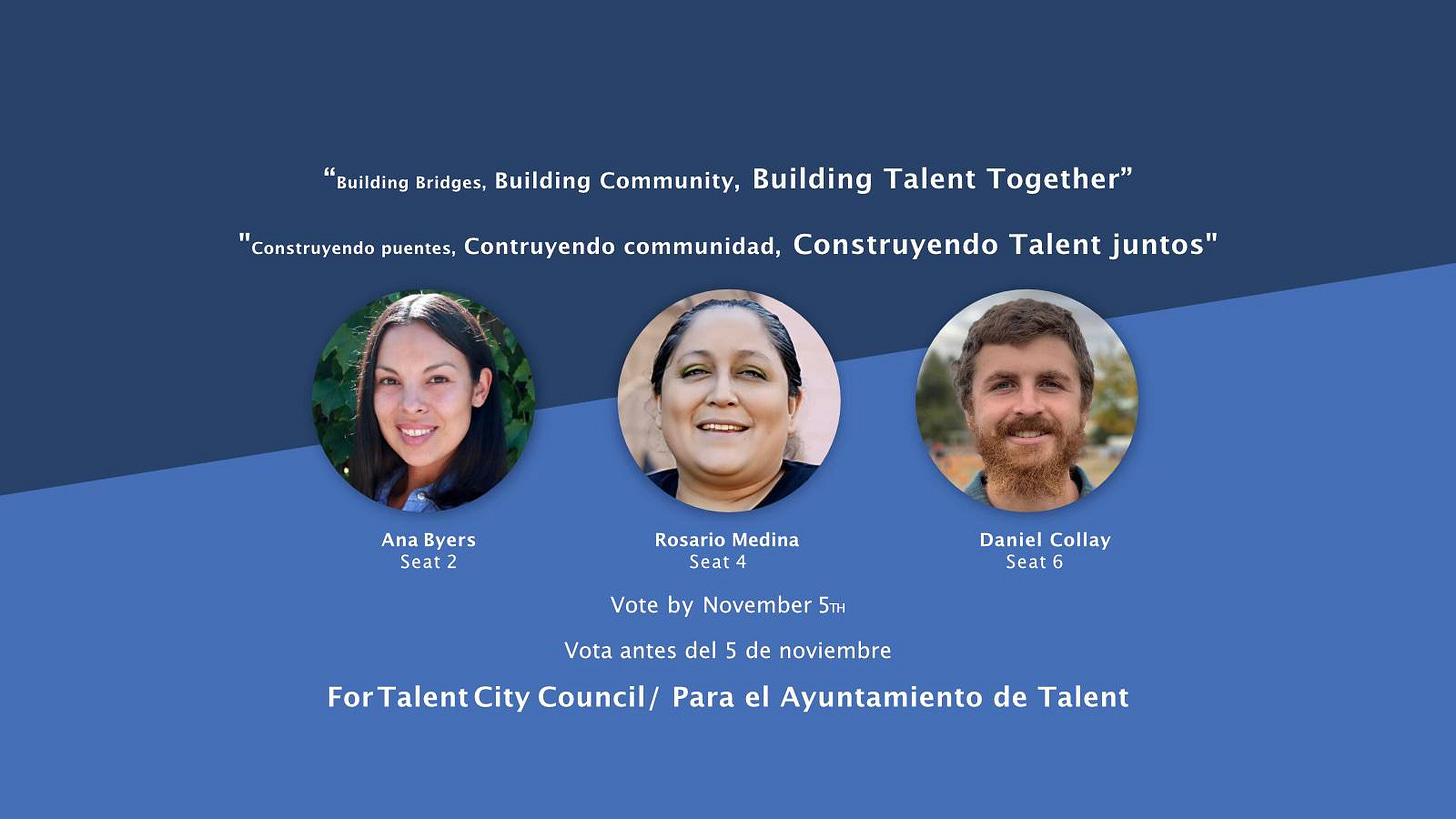
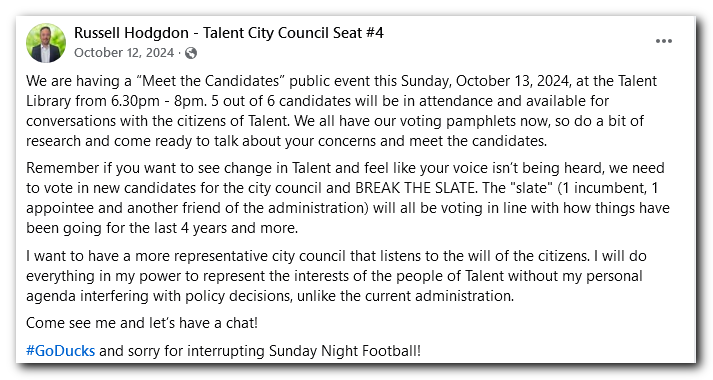
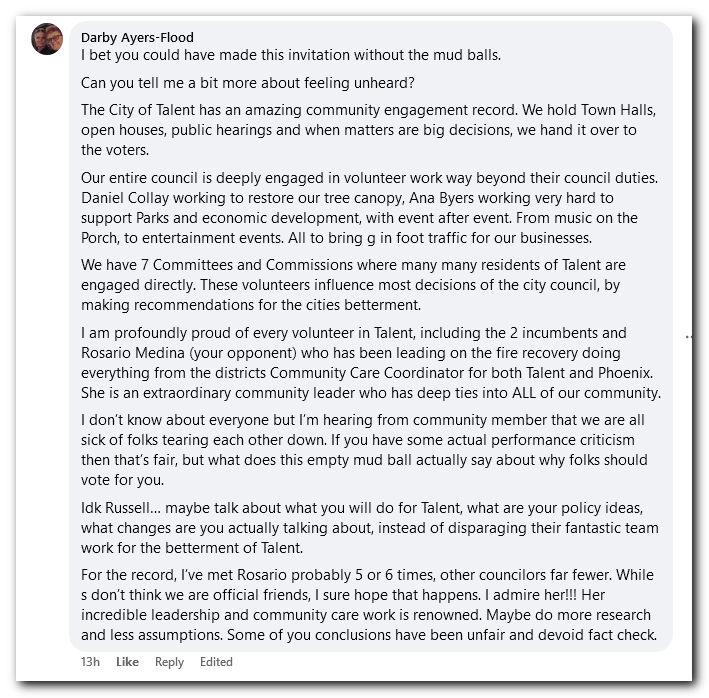
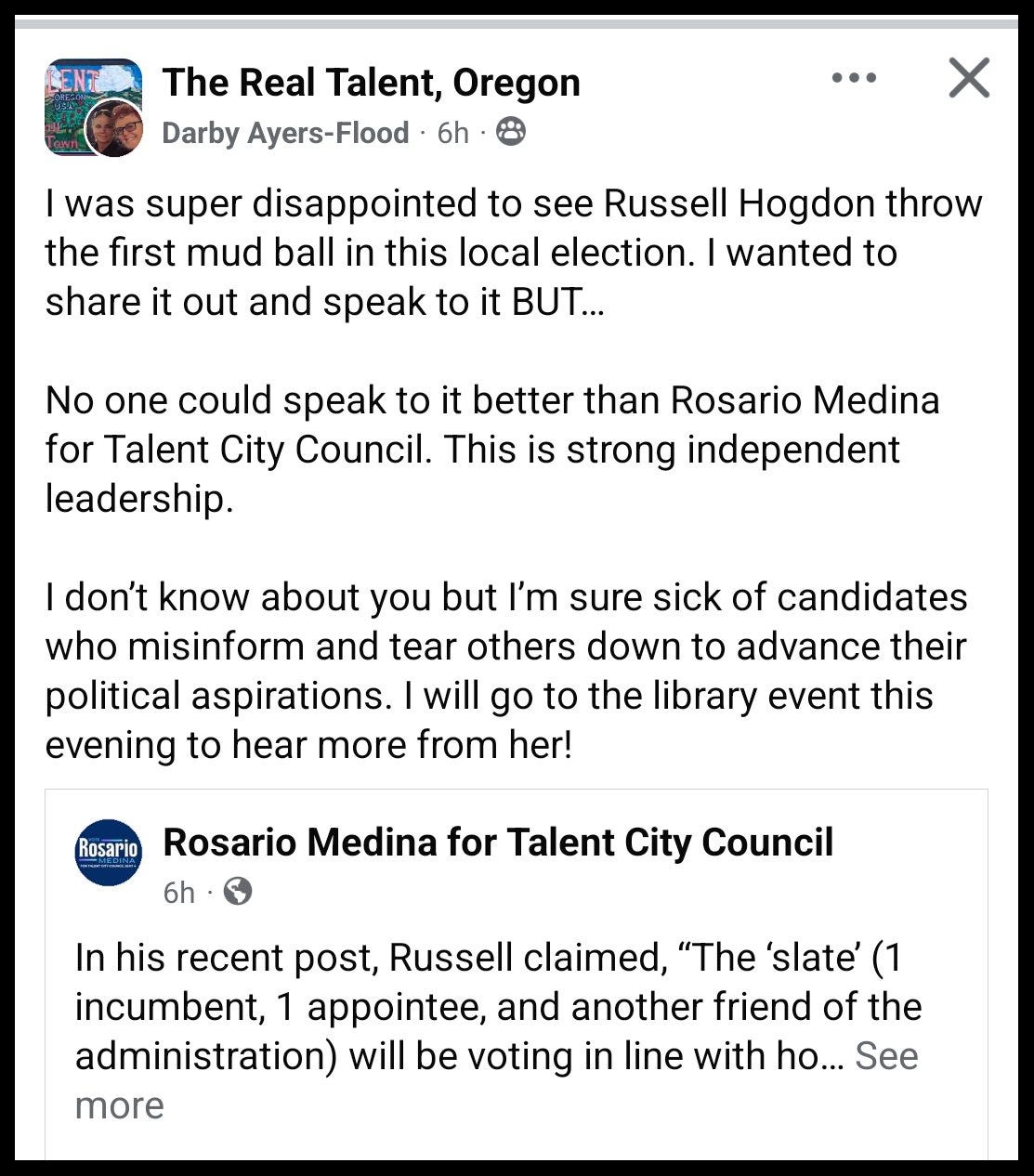
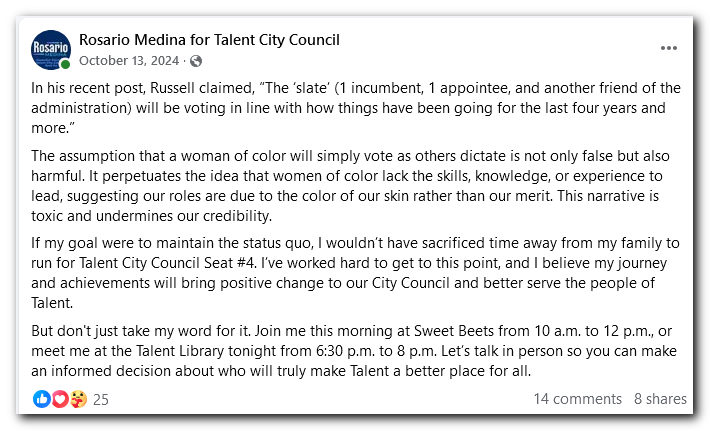

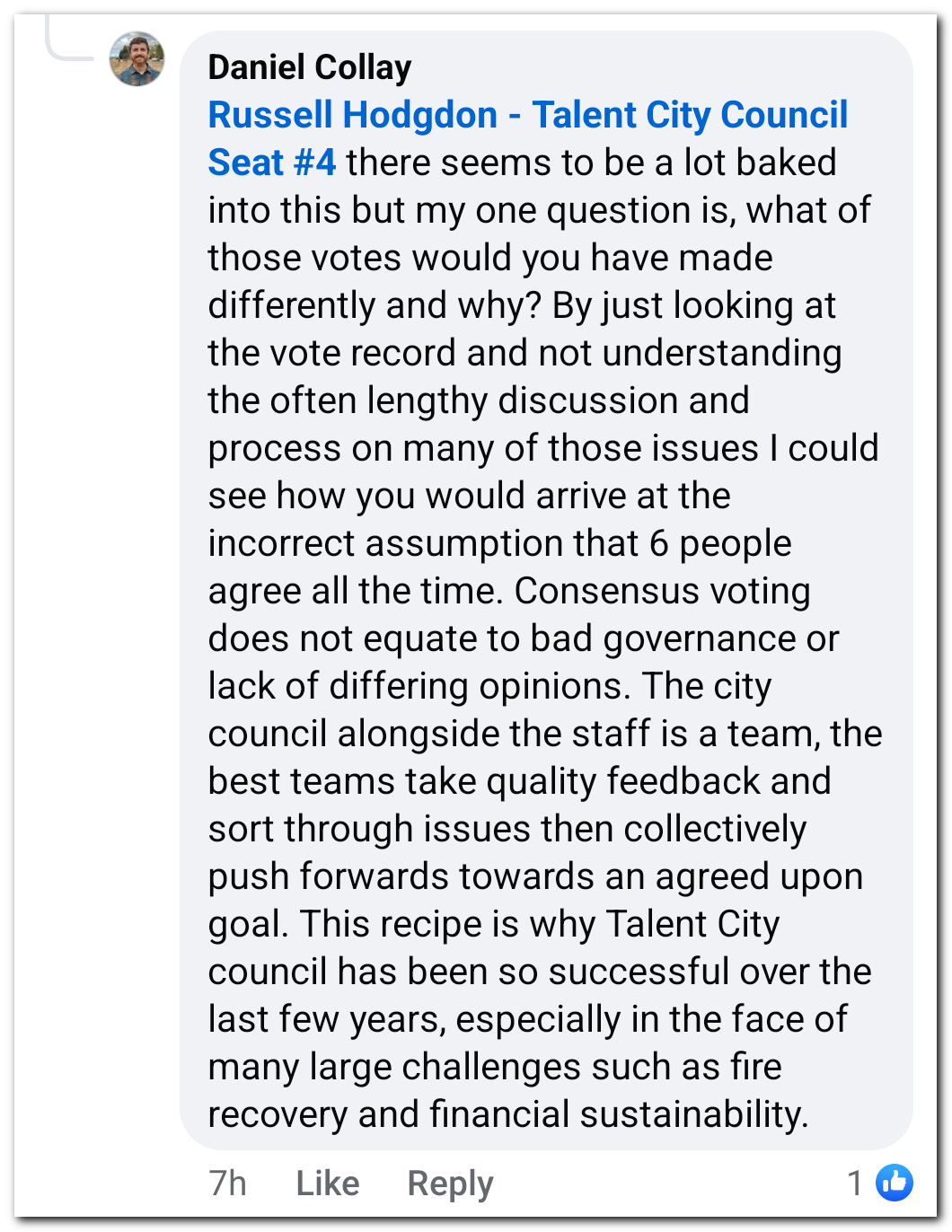


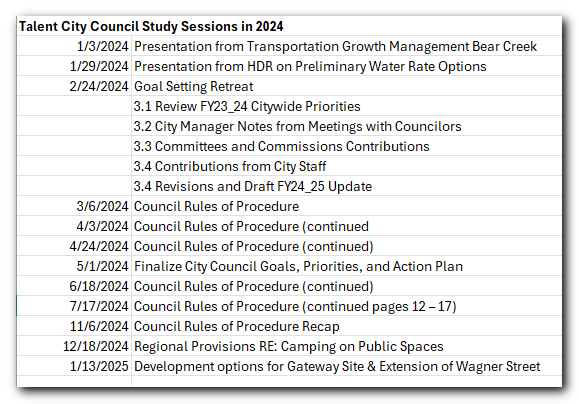
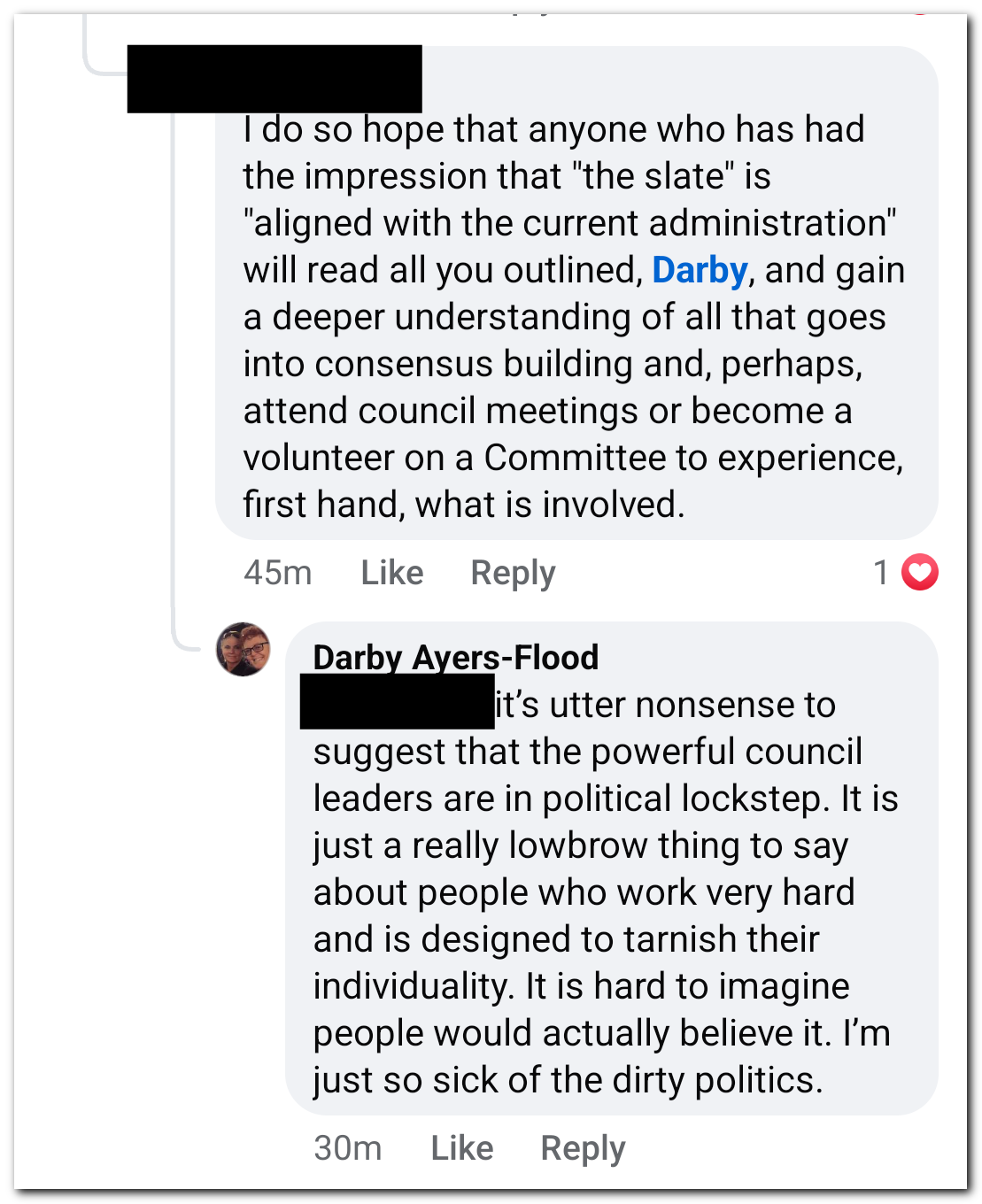
Thanks for writing this! Maybe we need to look at boroughs so that each councilor represents actual individuals so that they are beholden to the wishes of a specific geographic area and are held accountable by those residents. Our current system really limits personal accountability for residents to hold individual council people to task for their votes. It just ends up feeling like they are all one team with a specific agenda and no real local accountability or opposing opinions being voiced. The same thing happened to me when I applied for the open seat that Daniel Collay was appointed to last summer before the election. I had written thoughtful answers to their list of questions, and no one asked me any questions about my answers and just voted unanimously for Daniel as though the decision had been made before I got there. It is pretty frustrating trying to volunteer for local city government if you are seen as someone outside the existing bubble of influence. Especially as a Talent resident for nearly 40 years.
I always found it highly suspect that the entire council vote in unison on everything and aside from maybe some small debating always vote yay or nay unanimously.